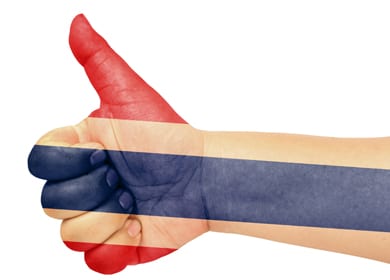 John is an old friend, but we hadn’t talked in years. Five years to be exact. So when I bumped into him last week, I didn’t know what to do. Should I apologize for not staying in touch? He didn’t give me the chance.
John is an old friend, but we hadn’t talked in years. Five years to be exact. So when I bumped into him last week, I didn’t know what to do. Should I apologize for not staying in touch? He didn’t give me the chance.
“Hey Nathan! I love what you’re doing to your home. The exposed brick looks amazing,” he said.
I’m shocked. How could he know that? Instinctively, my eyebrows raise, as if to ask, “Are you stalking me?”
“Well anyway,” he says, “I enjoyed the pictures of it that you posted on Facebook.”
Touché.
This brief exchange got me thinking. I have 594 friends on Facebook and I check my newsfeed a few times a day. So, somewhere in my mind, I’m juggling 594 life narratives. Major events. Pictures of sonograms. Witty status updates stolen from Conan O’Brien. They are all floating around, blissfully removed from any real, physical interaction. This is the irony of social media; its promise of limitless connection can quickly become nothing more than hyper-aware disconnection.
A Safe Distance
On the issue of social justice, I think we face a similar dilemma. The information age has made us hyper-aware of all the social injustice in the world. But it also has the potential to leave us feeling removed from it all.
Not long after my run in with John, I happened to watch the Kony 2012 video. Maybe you’ve heard of it. Admittedly, I was late to the party (97 million people saw it before me on YouTube alone). As I watched it, I was both incensed at Kony’s atrocities and amazed at the power of the social media to unite so many people for a single cause. I kept imagining a crowd of 97 million people all watching this together. Simply amazing!
But soon after, I notice the memory of Kony receding in my mind. It quickly became one of the many social justice narratives I juggle internally and do nothing to help. It’s right there beside dozens, maybe hundreds, of worthwhile causes: child slavery. inner-city poverty and so many more. In a way, social media enables me to follow these narratives in real time in the same way I follow the narratives of my friends on Facebook – from a safe and comfortable distance. I’m hyper-aware in my mind, while being disconnected physically.
Bin Laden and Butterflies
But what exactly am I supposed to do? Jesus was clear about giving food to the hungry and water to the thirsty. These are physical responses to physical needs. He was less clear about our digital responsibilities. Is it my responsibility to share the Kony 2012 video on my Facebook feed? Should I click the “Like” button when I see it on my friends’ feeds? Part of me feels I should, but I wonder if it will do any good. How many “Likes” on Facebook would it take to stop Kony? That’s like asking how many butterflies it would take to kill Bin Laden; there is no relationship between the two. The only action I can take at the moment is ultimately inconsequential. Does that mean I’m off the hook?
I realize I’m asking the same question that the expert on the law asked Jesus: “Who is my neighbor?” Of course, Jesus answered this with the story of the Good Samaritan; a shocking account of sacrificial giving to an enemy in need. I’ve heard this parable described as the modern day equivalent of telling an American that their “neighbor” includes members of Al Qaeda. Not exactly what the expert on the law (or I) was hoping to hear. We aren’t called to be neighbors just to people who we like, who are similar to us, or when it is convenient. No, we are called to be neighbors to people who are nothing like us, even when it means a great deal of sacrifice. This must be the case, I think, not just with our physical neighbors, but with our digital neighbors as well. It should guide our actions equally whether we are in Starbucks or on Reddit.
Off the Sidelines
How do make sure that we are engaged in authentic acts of loving our neighbor instead of getting caught in a hyper-aware but disconnected state?
First, I think it is important that each of us does pick a battle to fight. Even the early apostles focused their efforts. Paul ministered to the Gentiles and Peter to the Jews. So if you realize that you’re keeping mental tabs on multiple issues of social justice without actually committing to any of them, make a conscious effort to stop and see where you can most effectively be used. Get off the sidelines and into the game.
Second, don’t be discouraged by the seemingly huge gap between the need at hand and your own limited ability to affect change. Your action may seem inconsequential, but the reality is that small acts can have an enormous impact. Nowhere is this more apparent than on social media. Your status update, tweet or Tumblr post could bring an idea to its tipping point. It could be the very thing that starts an avalanche of support. So go ahead. Hit the “Like” button.
Third, if you do happen to run into an old friend, don’t be creeped out by how much he knows about your life. He probably just likes Facebook.

Comments